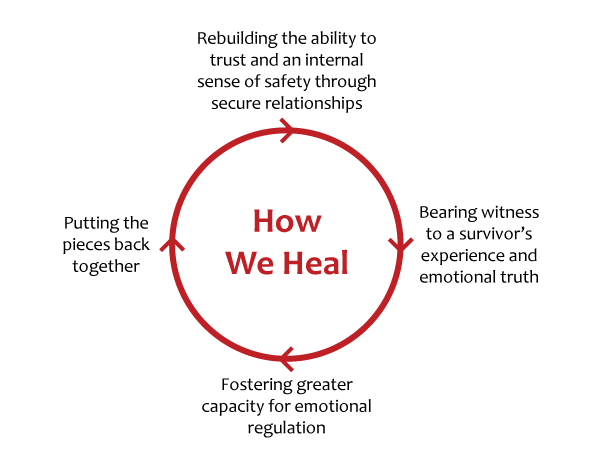The process of recovering from the deep emotional wounds caused by human rights abuses is challenging, but possible. Our experience has shown that the emotional and psychosocial impacts of trauma can be addressed by:

Rebuilding the ability to trust and an internal sense of safety through secure relationships
International survivors of human rights abuses have experienced the very worst of our human capacity for cruelty. A basic human need for relatedness and a sense of connection to trustworthy others is universal across cultures. Relationally-based interventions which emphasize the sensitive repairing of interpersonal trust and rebuilding of an internal sense of safety, constitute the foundation of our therapeutic approach to supporting survivors’ healing and recovery process.
Bearing witness to a client’s experience and to their emotional truth
The nature and impact of the traumas and losses human rights survivors have faced can be unbearable. Bearing witness to what they have endured, and to how it has made them feel, is another central component of our approach to healing.
Fostering greater capacity for emotional regulation
Threats to physical safety and psychological integrity affect survivors’ ability to regulate intense emotional responses to daily life, and survivors can become easily overwhelmed by reminders of the trauma they faced. Helping survivors better understand, identify and protect themselves from trauma triggers is another important aspect of our therapeutic work.
Constructing a new narrative
The overwhelming nature of the trauma and loss survivors have faced can lead to a sense of internal fragmentation and disorganization, disrupting the cohesive construction of memories, and the integration of a sense of self. An important aspect of our therapeutic work thus involves helping survivors reconstruct a story which makes sense of their past and enables them to develop a renewed sense of who they are.

